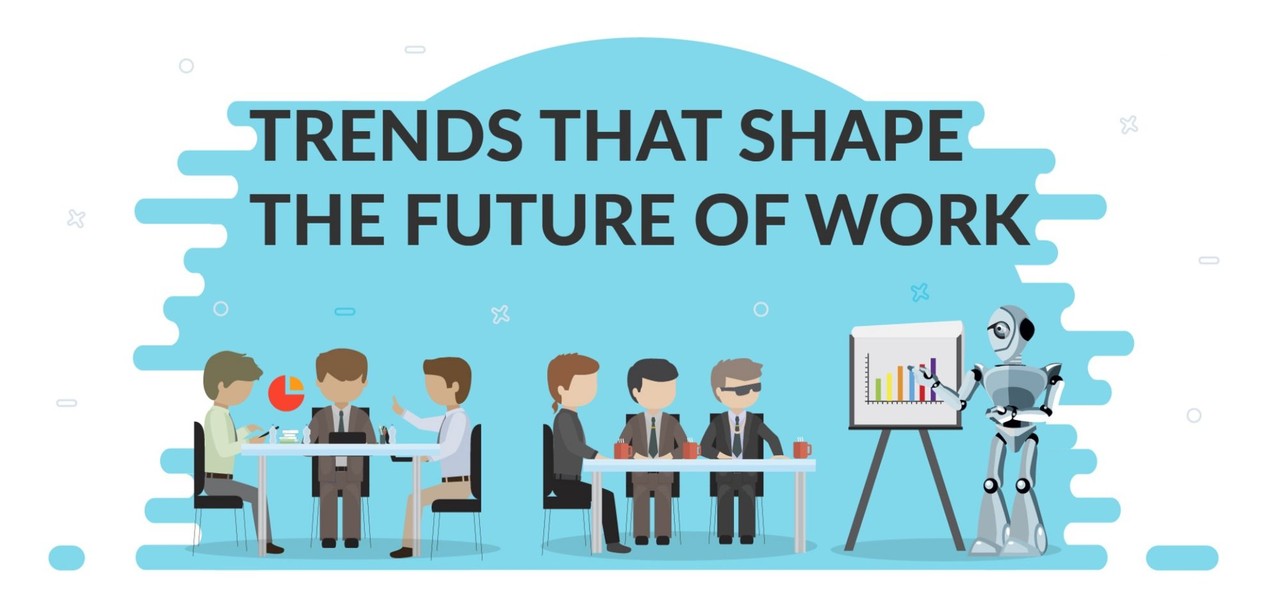As we navigate through the 21st century, the job market is undergoing rapid and transformative changes. Driven by technological advancements, shifting economic landscapes, and evolving societal norms, the future of work is being shaped by several key trends. Understanding these trends is crucial for both employers and employees to remain competitive and relevant in an ever-changing environment.
1. Automation and Artificial Intelligence (AI)
Automation and AI are revolutionizing various industries by enhancing efficiency and productivity. Robots and AI-driven systems are taking over repetitive and mundane tasks, allowing human workers to focus on more complex and creative aspects of their jobs. However, this shift also raises concerns about job displacement. While some jobs may become obsolete, new roles will emerge, requiring skills in AI management, robotics maintenance, and data analysis.
2. Remote Work and Hybrid Models
The COVID-19 pandemic accelerated the adoption of remote work, demonstrating that many tasks can be performed outside traditional office settings. As a result, companies are increasingly adopting hybrid work models, combining remote and in-office work. This trend offers flexibility to employees, reduces commuting time, and allows businesses to tap into a global talent pool. However, it also necessitates robust digital infrastructure and effective remote management strategies.
3. Gig Economy and Freelancing
The gig economy is expanding rapidly, with more individuals opting for freelance or contract-based work over traditional full-time employment. Platforms like Upwork, Fiverr, and Uber have made it easier for people to offer their services and for businesses to find specialized talent. This trend provides greater flexibility and autonomy for workers, but also raises questions about job security, benefits, and long-term career growth.
4. Lifelong Learning and Skill Development
In a fast-paced and ever-evolving job market, continuous learning is essential. The half-life of skills is decreasing, meaning that what was relevant five years ago might not be today. As a result, both employers and employees must prioritize lifelong learning and skill development. Online courses, professional certifications, and corporate training programs are becoming increasingly important in helping workers stay competitive.
5. Diversity, Equity, and Inclusion (DEI)
Diversity, equity, and inclusion are no longer just buzzwords; they are critical components of a thriving workplace. Companies are recognizing the value of diverse teams in driving innovation and creativity. There is a growing emphasis on creating inclusive work environments where all employees feel valued and have equal opportunities for growth and advancement. This trend is reshaping hiring practices, workplace policies, and corporate cultures.
6. Sustainability and Corporate Social Responsibility (CSR)
Sustainability and CSR are gaining prominence as employees and consumers alike demand more environmentally and socially responsible business practices. Companies are increasingly adopting sustainable practices, not only to reduce their carbon footprint but also to attract and retain talent who prioritize working for ethically responsible organizations. This trend is influencing job roles related to environmental management, sustainability reporting, and ethical compliance.
7. Health and Well-being
The importance of employee health and well-being has come to the forefront, particularly in the wake of the pandemic. Employers are investing more in mental health resources, wellness programs, and flexible working conditions to support their workforce. A focus on well-being helps in reducing burnout, increasing productivity, and fostering a more positive work environment.
8. Technological Literacy and Digital Transformation
As technology continues to evolve, digital literacy is becoming a fundamental requirement for most jobs. Businesses are undergoing digital transformations to stay competitive, and employees must adapt to new tools and platforms. Skills in areas like cybersecurity, data analytics, and digital marketing are in high demand, and organizations are seeking tech-savvy individuals to drive innovation.
Conclusion
The future of work is being shaped by a combination of technological advancements, changing work models, and evolving societal expectations. To thrive in this dynamic environment, both employers and employees must be adaptable, continuously learning, and proactive in embracing new trends. By understanding and preparing for these trends, businesses can build resilient workforces, and individuals can navigate their career paths with confidence.
